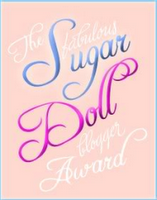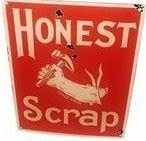How to Write a Synopsis
by Nathan Bransford
A synopsis needs to
- cover all of the major characters and major plot points (including the ending) and
- make the work come alive.
Nathan suggests that the length of a synopsis should be two to three pages, double spaced.
Visit his site for more information about each of these points.
Learn How to Write a Synopsis Like a Pro
on WritersDigest website
The synopsis should have:
- narrative arc
- active voice
- unique point of view
- story advancement
- clear writing
- mentioning too many characters or events.
- including too much detail about plot twists and turns.
- unnecessary detail, description, or explanation.
- editorializing your novel or book.
- writing back cover copy instead of a synopsis.
Please read the whole article about more details on each item.
on FictionAddiction.net
The synopsis should contain three elements:
- The hook (start with your story’s main character, the central conflict, and what he or she must do to overcome or remedy the conflict)
- The back-up (stop and give a little background information on your character and the conflict that makes the situation clearer)
- The meat (the plot points and how your character feels at each point)
This site suggests writing one page of synopsis for every 25 pages of manuscript, written in the present tense and telling the entire story.
This article also gives technical details on the format (header, spacing, etc.).
on Fiction Writer's Connection website
Synopsis checklist:
- Does the opening paragraph have a hook to keep the reader reading?
- Are your main characters' conflicts clearly defined?
- Are your characters sympathetic?
- Can the reader relate to them and worry about them?
- Have you avoided all grammar, spelling, and punctuation mistakes?
- Have you hit on the major scenes, the major plot points of your book? Did you resolve all important conflicts? Did you use present tense?
This article suggests to single space your synopsis if it's only one page, double space it if longer. The paragraphs should be indented, with no space in between.
Read the whole article for more tips on writing a synopsis and to help you decide when to write it (before or after writing the book).









































6 comments:
Learning to write a synopsis kicked my you-know-what. It was so much harder than I expected. The good news is once you've got it, you've got it. I don't have trouble with a synopsis now, but queries are still really hard...
You've done writers a great service by posting all this info. Thanks! :-)
It's good that you've posted all this. I think synopsis writing info is some of the most confusing out there. One person says write like cover copy; another says don't. One says 1 page; another says 2-3. We need to get as much info as we can and make the best judgment we can, taking agent or editor guidelines into account, too.
Great list of articles. Have added a link to my aggregator site The Funnily Enough
cheers,
Mood
Moody Writing
I hope I master the art of writing a synopsis soon, Lexa! I find it very challenging, but it has to be done. Thanks for your encouraging comment!
Very true, Marcia. I guess we have to start with a basic synopsis and adjust it according to guidelines, as needed. I think that's what I'll do.
Thanks for linking my post on your site, Mood! I really appreciate your support. You've got great articles in there.
Post a Comment